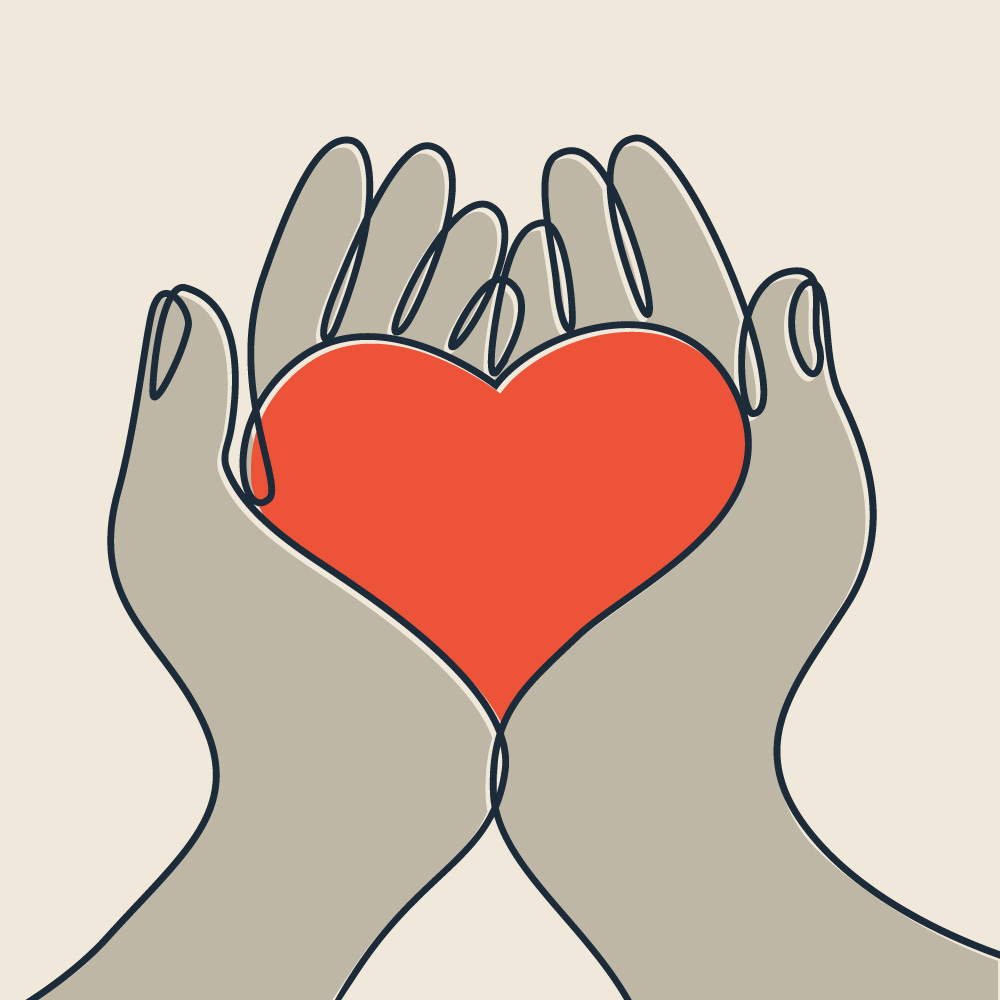
November 18, 2023, is International Survivors of Suicide Loss Day where those of us left behind by someone who died by suicide come together to find connection, understanding and hope. Although much work has been done to de-stigmatize mental health and suicide, there is still much work to be done. And for those who have lost a loved one to suicide, the grief and trauma on top of the stigma of suicide can be especially difficult to navigate.
Losing a loved one is always difficult. Losing someone to suicide can seem almost impossible to face. You may experience shock, anguish, guilt, the thought that you could have done more, or even feeling angry at your loved one for this choice. Why, seems to be the looming question; one that few find an answer to.
In the aftermath of your loss, you may struggle to feel connected to your everyday life. You may feel as though nothing will ever be the same, and it won’t. Those around you may not know what to say, so they say nothing, adding more to your pain.
While nothing can take away the pain of the devastating loss of your loved one, there are some ways to seek help and make some healing changes to find some peace and perhaps acceptance.
- Grieve in your own way: your grief is highly personal to you. There is no right or wrong way to grieve. Grief often ebbs and flows and it can take a long time to process your grief.
- Give yourself permission to feel what you’re feeling and to also express your emotions: often we think we must be strong for others and hold it together for everyone else. Your emotions are there and present whether we attend to them or not. It’s OK to not be OK. If we allow ourselves to feel those darkest moments, as well as joy in the memories we hold, it will help to ease our pain and move us along the path of healing.
- Journal: it can feel overwhelming to talk about your thoughts and feeling around this devastating loss. Writing them down, even if you do not wish to share your journal with anyone else, can be an outlet for your emotions. You can even choose to write the things you never had the opportunity to share with your loved one.
- Your loved one’s life is more than just their suicide: One act, even their final act, does not define an entire life. It may be helpful to remember and to also celebrate your relationship, your memories, their achievements, and funny stories with others about your loved one.
- There is no finish line: grief is a process and rarely do you start and come to a completion. Some days may feel more daunting than others. Some days will almost feel like “normal.” Expect ups and downs. You may hear a song, a phrase, a memory can pop up and, in a moment, the sadness and grief returns – and that’s OK too.
- Take care of yourself: it may feel like the furthest thing from your nearest thought and stress and trauma can take a toll mentally, physically and spiritually. Finding healthy ways to cope with your grief is best for you in the long run.
- Take your time: in a world that doesn’t seem to stop no matter the circumstance, do not rush your healing process. There is no timeline. Others may stop talking about your loved one or the loss long before you do. This is your process, and you need to take as much time as you need.
- Reach out for support: the loss of your loved one isn’t something you usually work out on your own. Reach out to family and friends. You can reach out to a professional, such as a therapist or counselor. You can find a bereavement support group, specifically one for those who lost someone to suicide.
There are many organizations and resources available. Here are a few:
American Foundation for Suicide Prevention: a resource for those who struggle with suicide or have lost a loved one to hear personal stories and find local resources.
Alliance of Hope for Suicide Survivors: organization for survivors of suicide loss provides information sheets, a blog and a community forum through which survivors can share with each other.
Parents of Suicides and Friends & Families of Suicides: website provides a public message board called Suicide Grief Support Forum, a listserv for parents, a separate listserv for others, and an online chat room for survivors of suicide loss.
Tragedy Assistance Program for Survivors: provides resources and programs for people grieving the loss of a loved one who died while serving in the US armed forces or as a result of their service. It has special resources and programs for suicide loss survivors.
United Survivors: people who have experienced suicide loss, suicide attempts, and suicidal thoughts and feelings, and their friends and families, can connect to use their lived experience to advocate for policy, systems and cultural change.
This article was written by Diane Benavides Wille who leads our Zero Suicide efforts. Diane has experienced the suicide of a client as well as the loss of a friend to suicide.


